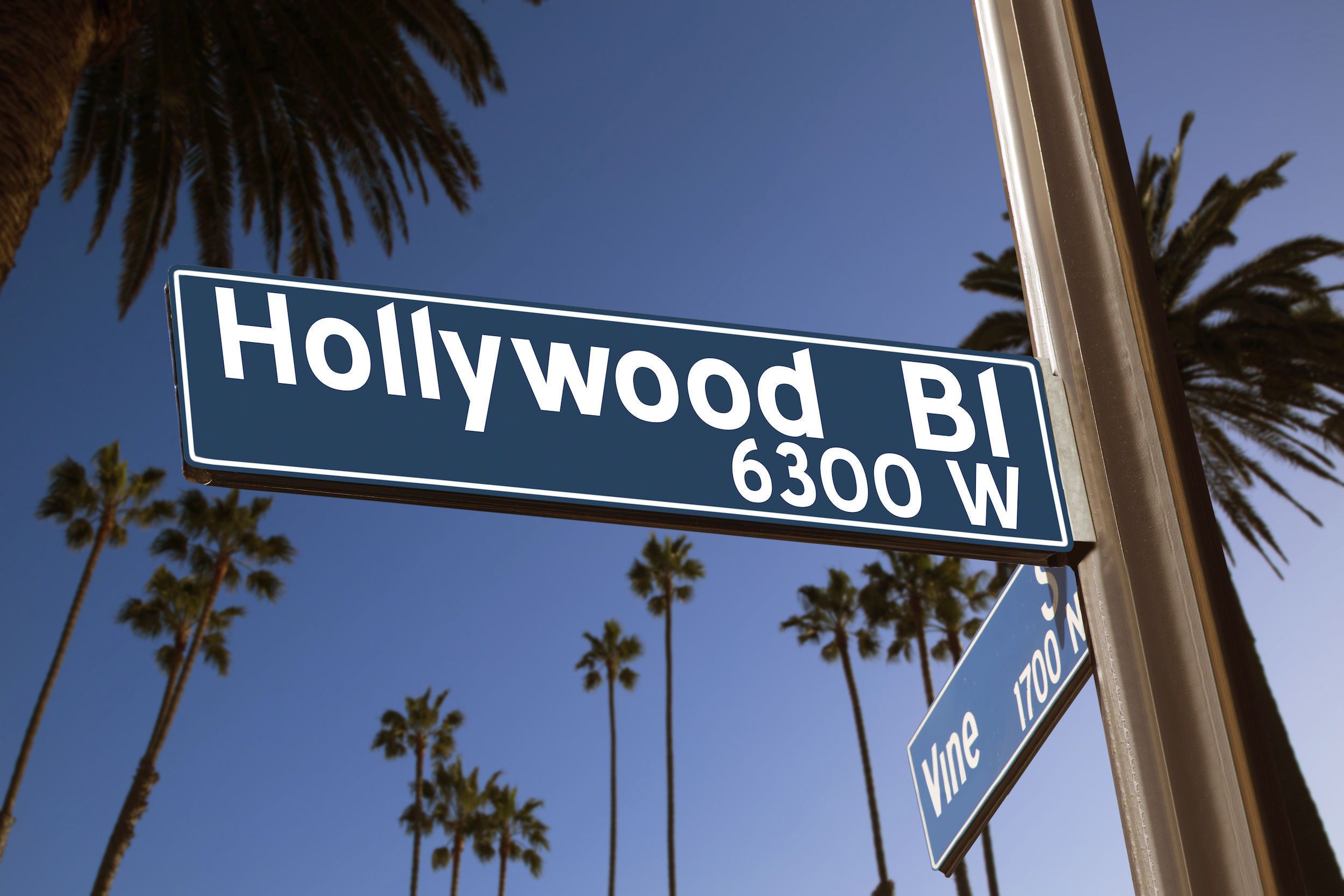10 movie stars who speak more than one language
 They’re rich, famous, attractive… and guess what? These ten actors and actresses also speak more than one language. Some of them grew up in other countries before arriving in Hollywood, while others have discovered a love for languages through their work and travel.
They’re rich, famous, attractive… and guess what? These ten actors and actresses also speak more than one language. Some of them grew up in other countries before arriving in Hollywood, while others have discovered a love for languages through their work and travel.
But are they any good? Check out the videos and judge for yourself…
Natalie Portman
The Star Wars actress can speak such a variety of languages from across the globe. Born in Jerusalem, she moved to the USA aged 3 and learned Hebrew at a Jewish elementary school. She’s since studied Spanish, German, Japanese and English. This woman is exceptionally talented.
Jodie Foster
The very intelligent Jodie Foster is fluent in French and understands Italian, German and Spanish from her frequent travels around the world. Her French is so good, she’s even dubbed herself in French-language versions of her movies.
Tom Hiddleston
This gentleman astounds us; he can speak eight languages, and yes that is eight! He is however only fluent in four of them, which are: Spanish, English, French and Greek. We’re certainly very impressed.
Penélope Cruz
Penélope Cruz could most certainly be called a polyglot, as she can speak a total of four languages fluently: Spanish, French, Italian and English. Born in Madrid, she learned French at school, and studied Italian to help her get a role in Non Ti Muovere (Don’t Move), for which she went on to win a David di Donatello award.
Sandra Oh
The Grey’s Anatomy star was born in Canada to Korean parents, and was brought up learning four languages. She is now fluent in English, Korean, Spanish and French.
Charlize Theron
Many people know that this Oscar-winning actress was born in South Africa; whilst she was there she learnt to speak fluent Afrikaans – and also Dutch, as they’re very similar languages.
Bradley Cooper
As if he didn’t have enough going for him already, Bradley Cooper – a.k.a. People’s Sexiest Man Alive 2011 – is also fluent in French. I think a lot of ladies just swooned.
Mila Kunis
Mila Kunis lived in Ukraine until she was seven, and today she is still fluent in Russian. When she arrived in the USA, she didn’t speak any English, and has since described the experience of starting school as like ‘being blind and deaf at age seven’.
Gwyneth Paltrow
After an exchange programme in the Spanish town of Talavera de la Reina when she was a teenager, Gwyneth Paltrow fell in love with the country, and still visits regularly. Unsurprisingly, she is now fluent in Spanish and often speaks the language to her children.
Sandra Bullock
The daughter of an American army officer and a German opera singer, Sandra Bullock lived in Germany for twelve years, often accompanying her mother on European tours. She made her first stage appearance in an opera in Nuremberg, aged 5.
Did you know that these celebrities spoke other languages? And do you know any others that are bilingual?
Amy
The true meaning of character names from fiction
The other day, I was watching one of my favourite films, The Lion King (yes, I know it’s a kids’ film but I love it) and I was reminded of a fun fact I read recently, that many of the characters’ names are taken from Swahili. Simba means ‘lion’, Rafiki means ‘friend’, ‘Nala’ means ‘gift’ and Pumbaa means ‘simpleton’. Poor Pumbaa.
So often when we watch a film or read a book, we take for granted that the characters are just called whatever they’re called, without considering why. So here are a few more examples – some of which may be surprising, but all of which I hope will be interesting.
Disney
The Lion King isn’t the only Disney film to give its characters significant names. In Beauty and the Beast, perhaps most obviously, the heroine’s name, Belle, means ‘beautiful’ in French. But many of the other characters resemble their names somehow, like Mrs Potts (the teapot), Cogsworth (the clock) and everyone’s favourite candelabra, Lumière, which means ‘light’.
In Sleeping Beauty, the name of the villain Maleficent comes from the Latin ‘maleficus’, meaning ‘wicked, prone to evil’. Seems appropriate. And on a similar theme, Cruella DeVille from 101 Dalmatians is pretty self-explanatory.
The Jungle Book
I think Rudyard Kipling would object to me listing this under Disney, although that might be where many people know The Jungle Book from. Shere Khan translates roughly as ‘Tiger King‘ (‘shir’ is ‘tiger’ – or ‘lion’ – in Persian, Punjabi and Hindi, while ‘khan’ is ‘king’ in many languages). ‘Bhalu’ (Baloo) means ‘bear’ in Hindi, and the ‘bagh’ in ‘Bagheera’ means ‘tiger’ – which is slightly confusing since Bagheera’s a panther.
Lord of the Rings
In J.R.R. Tolkien’s trilogy, the character Frodo Baggins gets his first name from the Old English word ‘fród‘, which means ‘wise by experience’.
Game of Thrones
The character names in George R.R. Martin’s books, and the accompanying TV series, for the most part seem to be modern names with a slight twist (Robb, Jaime, Eddard), but there is one character whose name has a deeper meaning – Bran Stark, whose first name is Irish for ‘raven‘. Fans of the series will know about the three-eyed raven, who plays a significant role in Bran’s story from the start.
Star Trek
I’m not much of a Star Trek fan myself, but I have it on good authority that Nyota Uhura’s name means ‘Star Freedom’ in Swahili.
Harry Potter
Many of the characters in J.K. Rowling’s best-selling series have names that mean something, most often in French or Latin. Voldemort (I’m not scared to say it!) means ‘flight from death’, which is very appropriate for a character whose main goal is immortality.
Meanwhile, the Malfoys’ surname means ‘bad faith’ in French, and perhaps the best known, because his name is a spoiler in itself – Remus Lupin, whose surname comes from ‘lupus’, which is Latin for ‘wolf’. His first name is also a reference to the story of Romulus and Remus, who were raised by wolves.
Star Wars
Speaking of spoilers – according to George Lucas, ‘Darth’ is a variation of ‘dark’ and ‘Vader’ is Dutch for ‘father’. So I guess the Dutch probably saw the big twist coming a mile off.
The Hunger Games
We’re told that Katniss Everdeen, the main character in Suzanne Collins’ books, was named for a plant, but there’s a bit more to it than that. The katniss plant is also known as ‘arrowhead’ and comes from the genus Sagittaria. Sagittarius – the archer. Katniss is pretty good with a bow and arrow. See how we got there?
So next time you’re enjoying your favourite movie or book, have a think about the character names, because they may have been the result of hours of debate!
Has anyone got any more examples?
Liz
Does speaking another language make you sexy?
The other day I discovered this article online. I already knew that Bradley Cooper spoke French, but was pretty happy when I realised that I could also listen to Johnny Depp, Ben Affleck and Colin Firth speaking various other languages too (French, Spanish and Italian, respectively). Being Grazia, the article is aimed at a female audience and only features male actors, but there are many famous women who also speak languages – Mila Kunis (Russian), Gwyneth Paltrow (Spanish), Natalie Portman (Hebrew) and Shakira (everything), among many others.
Here’s Bradley in action. I don’t speak French, unfortunately, so I have no idea what he’s saying, but it certainly sounds pretty good.
It’s easy to assume that movie and pop stars only speak English, because we only ever see them speak that language at the cinema or on TV. And let’s be honest, who hasn’t assumed at some point that because they’re rich and beautiful, they’re also lazy and probably not prepared to make the effort? As a result, we tend to be very surprised and make a big deal of it when we realise they do speak another language – even though, just like the rest of us, they went to school, go on holiday, have in-laws from another country to impress and sometimes may even need another language for work. So why is it so surprising?
Now – go to YouTube, search for ‘Bradley Cooper French’ and read some of the captions. Many of them say something along the lines of, ‘As if he couldn’t get any hotter…’ or ‘Bradley Cooper just keeps getting sexier!’ Which made me think – does speaking another language really make us sexy? And if so, surely this would be the perfect argument to encourage young people to keep going with languages at school? Never mind that they can get a better job, earn more, travel the world – if we could tell them it’ll make them more attractive to that girl/boy they fancy, maybe they’d be more interested.
 But of course not all men are Bradley Cooper or Johnny Depp (more’s the pity). So I have to wonder – is it the language that’s sexy, or the person speaking it? If Bradley Cooper were just Bradley from next door, would we be so impressed? I’m not sure that we would.
But of course not all men are Bradley Cooper or Johnny Depp (more’s the pity). So I have to wonder – is it the language that’s sexy, or the person speaking it? If Bradley Cooper were just Bradley from next door, would we be so impressed? I’m not sure that we would.
And also, why doesn’t this apply to all languages? If my experience of watching The Big Bang Theory is anything to go by, guys speaking Klingon tend not to have the same effect on women (for the most part – I know to some ladies it’s very attractive).
I’d love to hear what you think about this. Do you like someone more if they speak another language? Or is it just a nice bonus, which only applies to someone you already fancy? And will you be learning some French to impress your partner this Valentine’s Day? Let us know in the comments below 🙂
Liz
The Trouble with the Title
Today’s post is by our Italian intern, Ambra Calvi, a film fan who’s noticed some interesting translations of movie titles…
One of the main pleasures of learning a new language is getting to that point when you are able to watch a film in that language, and you start to understand bits and pieces. Nowadays, it’s become fairly easy to get hold of foreign titles. In the UK in particular, the range of titles available is very diverse, sustained by a long standing interest in so-called “world cinema”. On top of the usual foreign Oscar contenders every year, you can also catch the latest works of an upcoming Turkish director, or challenge yourself with a Thai action film, or spend the afternoon with a gripping Argentine drama.
 However, when a film is made available to international audiences outside the nation where it was made, it has to go through an essential process: the translation of its title. This is just one part of the bigger process of localisation which involves translating and adapting all the dialogues for subtitling or dubbing, but it’s an essential part. The title is the film’s immediate presentation, its way of attracting viewers, giving them a hint of the story and instiling some expectations about the experience they are going to have. Together with the poster, those few words can be crucial for the success of the film.
However, when a film is made available to international audiences outside the nation where it was made, it has to go through an essential process: the translation of its title. This is just one part of the bigger process of localisation which involves translating and adapting all the dialogues for subtitling or dubbing, but it’s an essential part. The title is the film’s immediate presentation, its way of attracting viewers, giving them a hint of the story and instiling some expectations about the experience they are going to have. Together with the poster, those few words can be crucial for the success of the film.
Growing up in Italy and being a film buff from a very early age, this is an issue that I’ve had to deal with quite a few times. At weekends, when choosing which film to watch from the leaflet of my local multiplex, if I didn’t know some films I would naively rely on the way their titles sounded. Unfortunately, this wasn’t always a good idea. I soon realised that somewhere in the mysterious places where the films were prepared for the Italian market, some people were using their creative flair to catastrophic results.
I’ll give you some examples: have you ever seen Crystal Trap? Doesn’t ring a bell? That’s because it’s the title under which Die Hard was released in Italy in the Eighties (as “Trappola di cristallo”). What about The Fleeting Moment? No? Well, that was Dead Poets Society (“L’attimo fuggente”). More recently, you could have seen posters of Bitter Paradise (“Paradiso amaro”), and had it not been for George Clooney sitting on a Hawaiian beach you would have never recognised The Descendants.
After keeping an eye on this worrying trend in the past years, I can now group these frequent translation oddities in recurrent categories:
- Radical changes from the original title, often resulting in a more banal – or just silly – new one: see for example How to Lose Friends and Alienate People, translated as Star System: If You’re Not There You Don’t Exist (“Se non ci sei non esisti”). Even worse, The Back-up Plan, which became Nice to Meet You, I’m a Bit Pregnant (“Piacere, sono un po’ incinta”). Similarly, The Break Up was translated as I Hate You, I Dump You, I… (“Ti odio, ti lascio, ti…”). Sometimes the changes of meaning in the title are completely unnecessary: can anyone explain to me why Beasts of the Southern Wild had to become King of the Wild Land (“Re della terra selvaggia”)?
- An unexplainable tendency to romanticize: the popular The Shawshank Redemption became The Wings of Freedom (“Le ali della libertà”), and The Place Beyond the Pines, the new Ryan Gosling film, will be released as Like a Thunder (“Come un tuono”). More specifically, there seems to be a belief that inserting the word “love” in a title will magically attract millions of people craving for super sentimental stories: following this theory, The Time Traveler’s Wife was translated as A Sudden Love (“Un amore all’improvviso”), and the Johnny Cash biopic Walk the Line became When Love Burns the Soul (“Quando l’amore brucia l’anima”).
- The real horror happens when translators come up with one bad title, and in the years to come they use a series of variations for other non-related films. This happened with Runaway Bride, with Julia Roberts and Richard Gere, which was translated as If You Run Away I’ll Marry You (“Se scappi ti sposo”), and was then followed by Intolerable Cruelty becoming First I’ll Marry You Then I’ll Ruin You (“Prima ti sposo poi ti rovino). Then the lowest point in this disaster: the dreamy, wonderful Eternal Sunshine of the Spotless Mind was smuggled as If You Leave Me I’ll Erase You (“Se mi lasci ti cancello”), alienating the sympathies of most sensible viewers. A similar fashion started with The Texas Chainsaw Massacre becoming Don’t Open That Door (“Non aprite quella porta”), which generated Don’t Enter that School (“Non entrate in quella scuola”, originally Prom Night) and Don’t Open That Closet (“Non aprite quell’armadio”, which was Monster in the Closet).
 There are – unfortunately – hundreds of other examples, but this is enough to show how a bad title translation can completely alter the destiny of a film, consigning some masterpieces to oblivion only because they are mistaken for something completely different, or because they sound like cheap b-movies. While in some cases of films with short, simple titles, keeping the original version can be the best solution, generally speaking Italian distributors should really make an effort and try to come up with creative, honest ideas to maintain the intention of the director. After all, Italy has a great tradition in literary translation, so I don’t see why we shouldn’t do our best when it comes to films as well.
There are – unfortunately – hundreds of other examples, but this is enough to show how a bad title translation can completely alter the destiny of a film, consigning some masterpieces to oblivion only because they are mistaken for something completely different, or because they sound like cheap b-movies. While in some cases of films with short, simple titles, keeping the original version can be the best solution, generally speaking Italian distributors should really make an effort and try to come up with creative, honest ideas to maintain the intention of the director. After all, Italy has a great tradition in literary translation, so I don’t see why we shouldn’t do our best when it comes to films as well.
If anyone has any other examples of strange film title translations, we’d love to hear them!
Ambra
